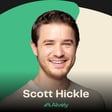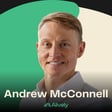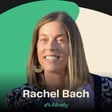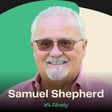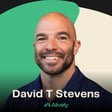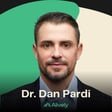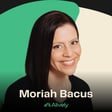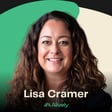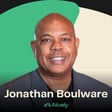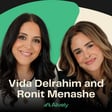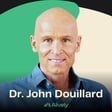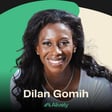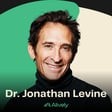
Extend Your Healthspan with Bill Gifford - E52
Could the key to adding vital, healthy years of your life be hiding in plain sight? In today's episode, we separate fact from fiction in the often confusing world of fitness and aging. Many of us reach a point where maintaining health feels like an impossible challenge, with contradictory exercise advice only adding to our frustration. We'll cut through the noise to reveal how strategic movement can transform your health trajectory, helping you break free from stagnation and rediscover the vibrant energy you thought was lost to time. Join us as we share the science-backed strategy that can turn exercise from a chore into your most powerful tool for extending not just your lifespan, but your healthspan.
Bill Gifford is an acclaimed journalist, author, and curiosity-driven outdoorsman. He is best known for co-authoring the New York Times bestseller "Outlive: The Science and Art of Longevity" with Dr. Peter Attia, a definitive work on the science of longevity and healthspan. Bill also wrote the bestseller "Spring Chicken: Stay Young Forever (or Die Trying)", a deeply personal and investigative look at the aging process. He has written for Wired, Bloomberg and Men's Health, among others.
“There are more people who need to start doing something, or do maybe a little bit more than they are now… than there are people who are worried… about overtraining.” - Bill Gifford
In this episode you will learn:
- How curiosity, adventure, and a passion for learning can act as lifelong drivers for health and vitality, shaping both career paths and daily habits.
- The value of diverse, enjoyable movement and how a broad approach to fitness—including strength, flexibility, and balance—contributes to healthy aging.
- Why individualized dietary approaches matter more than following popular nutrition trends, and what the latest research suggests about fasting, muscle mass, and metabolic health.
- The importance of quality sleep and proper recovery, including the trade-offs between early morning routines and getting adequate rest.
- How social connection, intentional relationship-building, and shared experiences help to combat loneliness and add meaning to our lives as we age.
- Practical steps for creating lasting change—such as signing up for an event or making a firm commitment—that can impact all pillars of healthspan, from nutrition to social engagement.
Resources
- Connect with Bill on Instagram: https://www.instagram.com/billgifford
- Buy his book, ‘Spring Chicken’: http://a.co/d/dA35FHE
- Read and buy the book he co-authored with Dr. Peter Attia, ‘Outlive’: https://www.amazon.com/Outlive-Longevity-Peter-Attia-MD/dp/0593236599
This podcast was produced by the team at Zapods Podcast Agency:
https://www.zapods.com
Find the products, practices, and routines discussed on the Alively website:
https://alively.com/
